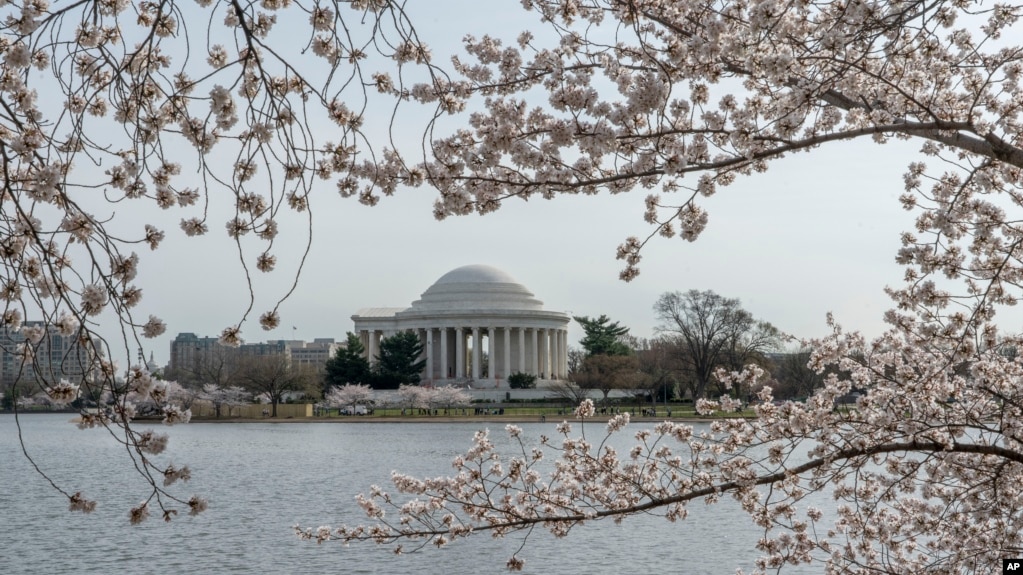
Thomas Jefferson Memorial is seen amid cherry trees that are in full bloom around the Tidal Basin in Washington, Tuesday, March 22, 2022. (AP Photo/Gemunu Amarasinghe)
And now, Words and Their Stories from VOA Learning English.
Spring has come to many places around the world. Here in the Northern Hemisphere, we celebrate the first day of spring on the vernal equinox. In 2022, spring began on March 20.
With new life starting to show in nature, it is easy to see why this season has meant hope and new beginnings to many people through history.
As a verb, the word “spring” can mean to come forth with energy.
For example, when you “spring into action,” you start a project or task with a lot of positive energy.
Here is another way to use “spring” as a verb. If you “spring” news or information on someone, you tell them something without preparation. For example, the other day a good friend told me she would be moving to a new city by the end of the week! I can’t believe she sprung such important news on me.
And that brings us to our expression for today’s show: hope springs eternal.
“Hope springs eternal” means that people can always find a reason to hope, even in the bleakest situations. Here, the word “bleak” means to not have much hope.
Eternal means to last or exist forever, without end or beginning. So, there is a dreamy quality to this expression.
It is actually considered a proverb, a short well-known saying containing a wise thought. The wise thought here is that we human beings never stop hoping or believing that things will get better. Even when common sense tells us that something will not happen — we still think it will.
For example, a group of friends tried to start a business together. Their first three tries failed. But that did not stop them from trying again. You know what they say: Hope springs eternal!
Here is another example. Even though a woman lost her job, her car, and her apartment all in one month, she still kept a positive attitude. She still had good health and good friends. She asked them for a little help and then started to rebuild her life. For her, hope springs eternal is more than a proverb. It is her life’s motto.
People who use or believe in this proverb as optimists. They optimistically believe in a brighter tomorrow. A pessimist, the opposite of an optimist, probably won’t use “hope springs eternal” very often … if at all.
Language experts say the proverb “Hope springs eternal” comes from a shortened line from Alexander Pope’s 1732 poem An Essay on Man. He wrote: “Hope springs eternal in every human breast.”
And that’s all the time we have for this Words and Their Stories. Until next time … I’m Anna Matteo.
Anna Matteo wrote this story for VOA Learning English.
__________________________________________________________________
Words in This Story
vernal equinox – n. the equinox in spring, on about March 20 in the northern hemisphere and September 22 in the southern hemisphere
positive – adj. having a real or beneficial effect or result
eternal – adj. lasting forever : having no beginning and no end
bleakest – adj. lacking in warmth, life, or kindliness
proverb – n. a short well-known saying containing a wise thought
motto – n. a short expression of a guiding rule of conduct
optimist – n. a person who is inclined to be hopeful and to expect good outcomes
pessimist – n. a person who is inclined to expect poor outcomes
opposite – adj. being in a position to contrast with or cancel out